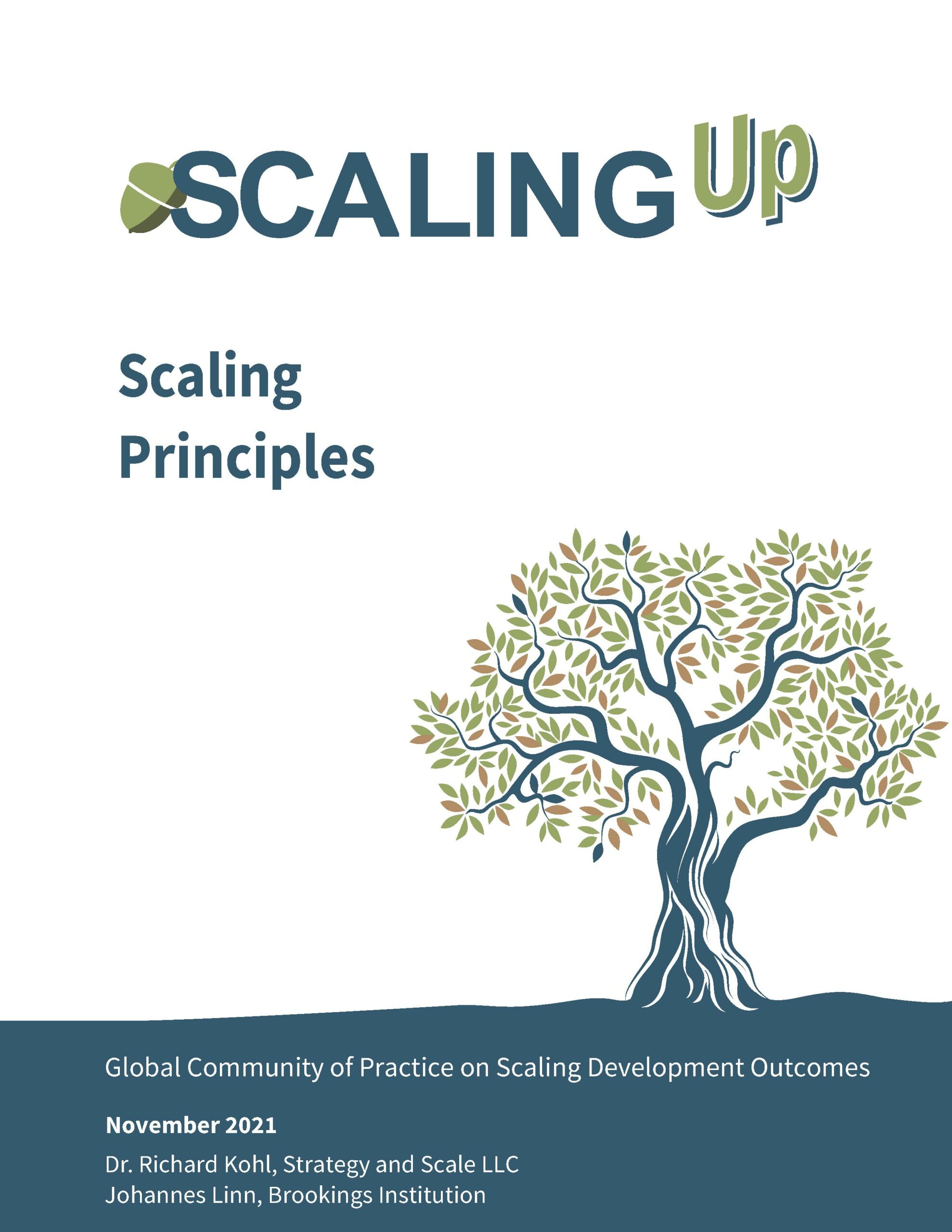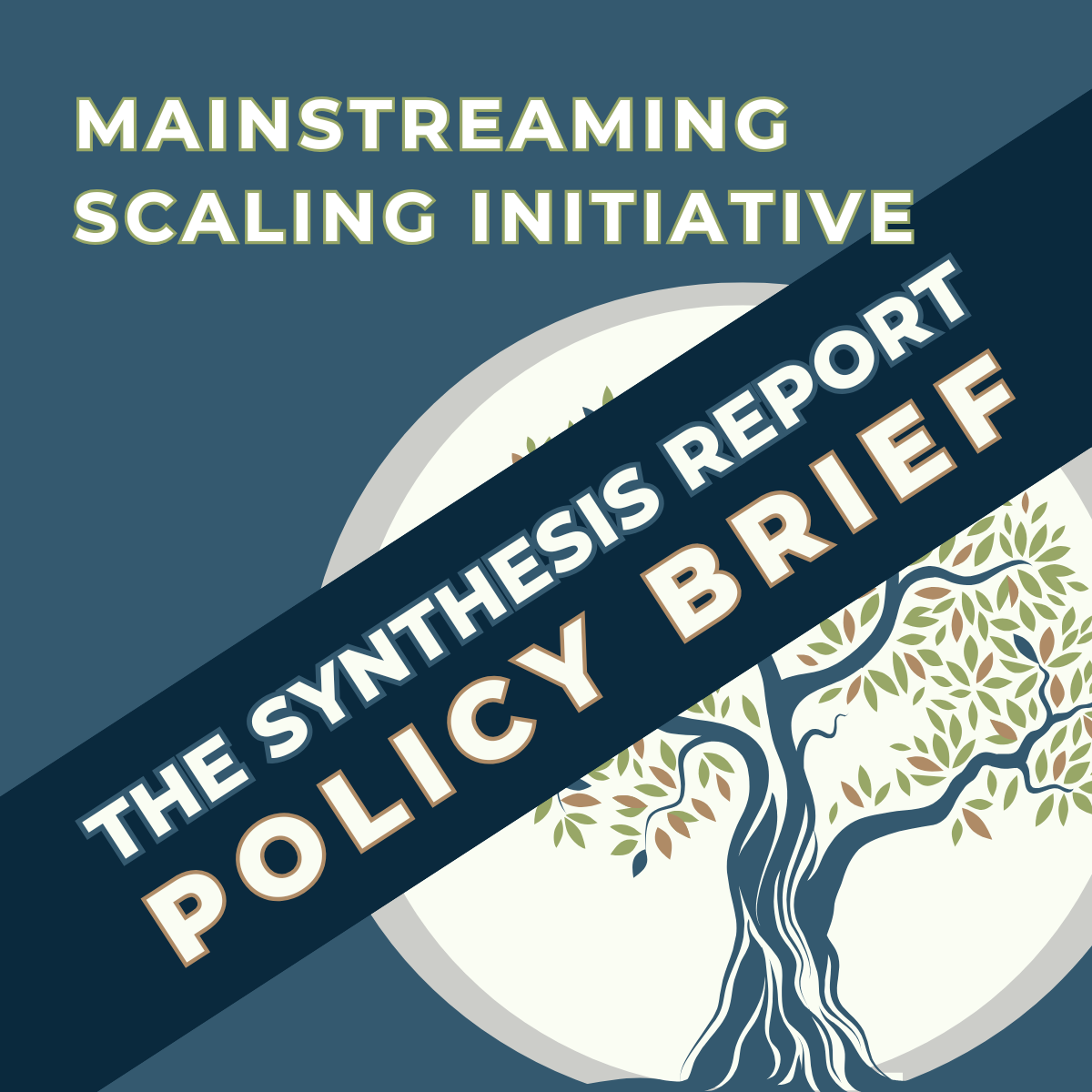Abstract
Scaling has increasingly been accepted by international development actors as core to their mission, goals and activities. While a number of scaling frameworks have been developed, there is no consensus as to widely applicable scaling principles and lessons. To address this gap, the Scaling Community of Practice
commissioned this working paper to help develop such a list of scaling principles.
This paper presents eight scaling principles and twenty lessons unpacking those principles, grouped under six broad questions about how to address the scaling challenge. The principles and lessons were derived from interviews with key informants active in scaling in international development and from a selective survey of the scaling literature. Drawing on that information, the principles and lessons were selected based on their frequency of mention and on the subjective views of the authors, each with over fifteen years of experience in scaling and over 40 years of development practice. The paper offers background as to the origins and description of each lesson, some operational guidance on how to apply the lesson in practice, and caveats as to the limits of the lesson. The paper ends with a set of conclusions that the authors draw from the process of selecting the principles and lessons and with a reflection on the direction of possible future work in applying and adapting these principles.
The principles imply that scaling has to be clear on the vision at scale, on the impact to be achieved and at what scale, on the innovation or intervention to be scaled, and on who will play key roles in going to scale and implementing at scale. All of these decisions need to be coherent with each other and aligned with systemic constraints, especially financial resources and implementation capacity. The decisions need to be based on a scaling strategy whose implementation should be iterative, adaptive and committed to a long-term scaling pathway. Other key considerations include: (i) bring scaling into the innovation process
early; (ii) address key tradeoffs in setting goals for scale, impact, equity and sustainability; (iii) be inclusive and participatory; and (iv) embrace the political nature of scaling, with the need to advocate and to align incentives of key actors, while recognizing that that there will be not only winners, but also losers. Almost
all of the principles and lessons require broader, deeper and ongoing evidence than traditional project approaches to international development. Application of the principles and lessons will often imply a significant departure from existing development practice, suggesting that beginning with simple changes and scaling in phases may be the best approach to mainstreaming these principles.



